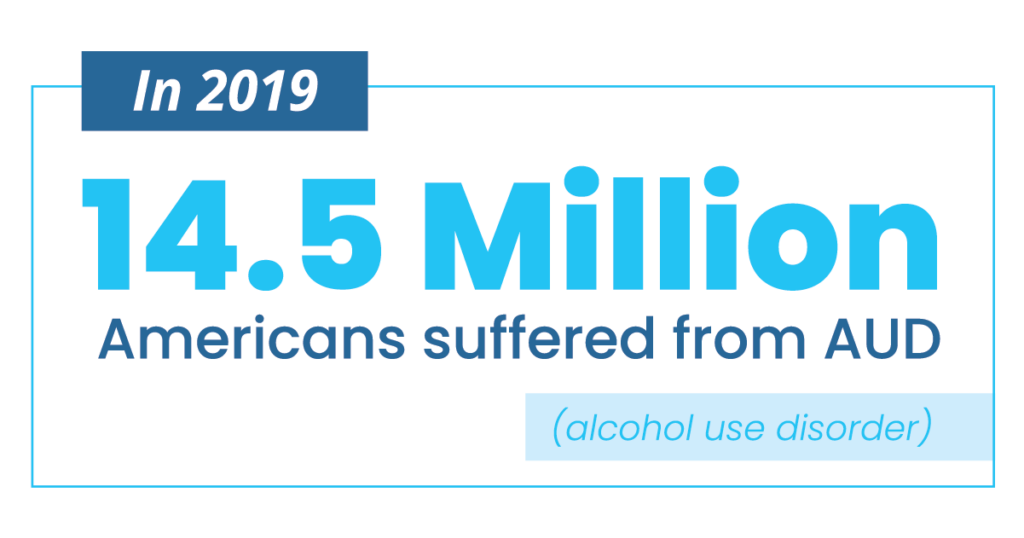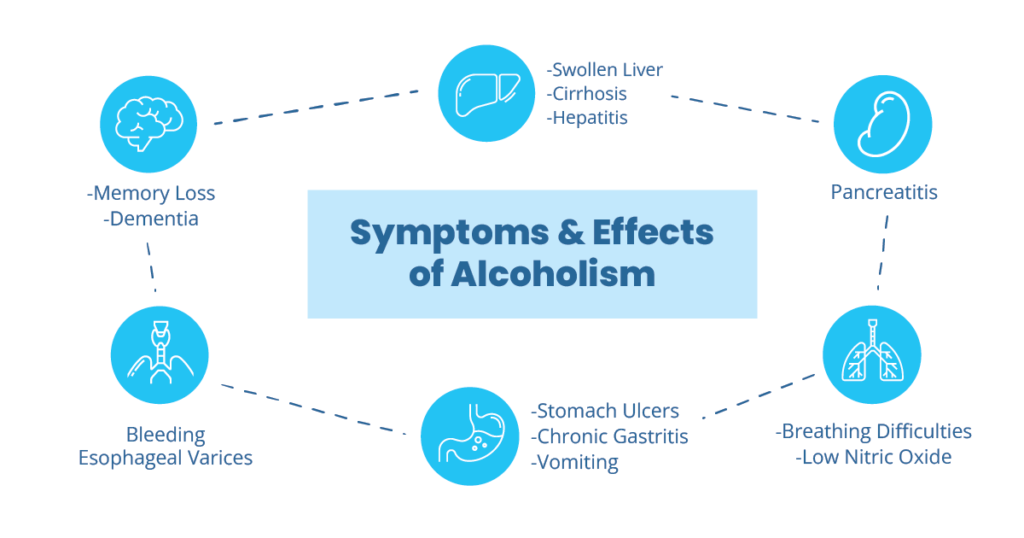Alcohol addiction, also referred to as alcoholism, is the most severe type of alcohol misuse and is characterized by an inability to control drinking habits. Alcohol dependence is also commonly known as alcohol use disorder (AUB). The severity of alcohol use disorder is classified as mild, moderate, and severe. Each category includes a variety of symptoms and side effects. Any sort of alcohol abuse may spiral out of control if left untreated.
According to the National Survey on Drug Use and Health (NSDUH), almost 14.5 million people in the United States had AUD in 2019. Many people will never seek treatment for their alcoholism, which might help them heal and find a road to lifelong sobriety.
Due to the legality and omnipresence of alcohol in our culture, it may be difficult for some people to identify if they have an alcohol problem. Also, because alcohol consumption is typical in social settings, people who have lost control of their drinking may not consider it a problem.
However, it is essential to know that addiction causes changes in brain chemistry and leads to many psychological problems. Alcohol abuse in the short term can cause memory loss and coordination issues. On the other hand, long-term alcohol addiction can increase the risk of suicide because social isolation is a side effect of the condition. Overall, long-term alcohol abuse significantly affects mental and physical health.

Alcohol Abuse Treatment Options
For many people, admitting that they have a problem with drugs or alcohol is the crucial first step toward recovery. The next step is to discover a treatment program that can assist them in regaining their total health, happiness, and well-being.
A person can pick from a variety of different treatment options. For example, some individuals with severe addictions go through a detox program before entering rehab. Others may want to start their rehabilitation in an inpatient or outpatient facility. They attend support groups, and therapy sessions after treatment are encouraged to reinforce the lessons learned in the alcohol rehab facility.
It’s not simple to recover from an addiction. Significant willpower and self-discipline will be required to attain and sustain long-term sobriety. On this recovery journey, you will never be alone. You’ll form close bonds with other people in recovery who understand what you’re going through during rehab. During this time, your family, friends, and other loved ones also look out for your best interests.
Types of Treatment Programs
There is no such thing as a one-size-fits-all approach to addiction treatment. Treatments may differ depending on your individual needs. Here are some of the most common addiction treatments that have helped patients achieve long-term sobriety.
Inpatient Rehab
Inpatient treatment programs address all aspects of an addict’s addiction. During inpatient rehab, addicts stay in a substance-free facility and get medical care and treatment around the clock. Individuals facing severe addiction and those suffering from a co-occurring behavioral or mental illness can benefit from inpatient rehabilitation.
There are two main inpatient alcohol treatment programs: residential inpatient rehab and partial hospitalization. Your doctor may prescribe one sort of rehabilitation over another based on the severity of your alcoholism, the length of time you’ve abused alcohol, your financial condition, and other factors.
- Inpatient residential recovery programs often last 30 days, 60 days, or 90 days. During your treatment, you will be needed to remain on site. Because it is the most intensive kind of treatment, it is the most effective in helping persons experiencing severe alcoholism. The first week of inpatient residential treatment will usually entail detox. After that, you’ll follow a structured daily therapy schedule to complete your rehabilitation.
- A partial hospitalization program is a hybrid of inpatient and outpatient care. It can be as intensive as a whole hospital setting, yet partial hospitalization programs let you return home every night. People who live near the alcoholism treatment center and have a stable home environment benefit the most from this treatment approach. Even though patients are allowed to return home each evening, they are constantly watched for signs of relapse, withdrawal symptoms, and other health problems.
Outpatient Rehab
Outpatient rehabilitation programs are another type of comprehensive addiction treatment. These programs provide many of the same effective treatments and therapies as an inpatient treatment center. However, outpatient rehabilitation programs let patients reside at home during recovery. Patients can continue to work and care for their families while attending therapy sessions planned throughout the week.
It is vital to remember that outpatient rehab centers do not exclude patients from the real world; ultimately, patients are more likely to face triggers that threaten their sobriety. Due to this, outpatient rehab programs are suitable for those with moderate types of addiction.
There are several outpatient alcohol treatment options. The three most popular types are day treatment, intensive outpatient, and ongoing care groups. Your doctor may prescribe certain programs over others based on your specific needs.
- The most intensive outpatient rehab program is day treatment. Patients must attend five to seven days per week and may participate in full- or half-day programs. Since day treatment is more organized, a person’s daily schedule includes medical detox, counseling, support groups, and other types of treatment.
- Intensive outpatient programs are considerably more flexible than day programs. Meetings are usually scheduled during the day or evening, which is incredibly convenient for people with other responsibilities. When an individual initially begins an intensive outpatient treatment, there are regular meetings. However, as people reach various recovery goals, the frequency of sessions will decrease.
- Continuing care groups are typically the final phase of the recovery process. These assist individuals stay sober and give a forum for discussing achievements and struggles. Although the preferences of the participants sometimes determine the frequency and length of meetings, the majority of continuing care groups meet once or twice each week for an hour or two.
Addiction Treatment Medications
Throughout detox and treatment, individuals may be prescribed medications to aid their recovery. These medications are utilized for a variety of purposes, including the management of withdrawal symptoms, the reduction of cravings, and the treatment of co-occurring substance use disorders. When combined with a structured treatment program, medications for addiction treatment are most successful.
Psychotherapy in Alcohol Addiction Recovery
Psychotherapy provides a structured, non-judgmental setting where patients can discuss their challenges and struggles. The essence of psychotherapy is talking through these issues. Even if patients can eliminate their physical alcohol dependence, they may have a psychological gap that alcohol was filling.
Before the patient can reintegrate into society, these underlying difficulties must be addressed. It may be accomplished through individual sessions between a therapist and patient, group therapy, or both.
A therapist can implement a variety of psychotherapies to assist clients in alcohol addiction recovery. The following are the most commonly used:
Cognitive Behavioral Therapy (CBT)
Cognitive-behavioral therapy (CBT) was initially developed as a treatment for mood disorders but was later adapted to treat alcohol use disorder (AUD). This type of psychotherapy assists people battling mental illnesses in identifying and change wrong views of themselves and the world around them. The therapist helps you develop new ways of thinking by highlighting both your “wrong” and “right” beliefs about yourself and others.
Dialectical Behavioral Therapy (DBT)
Dialectical behavioral therapy (DBT) was first developed to treat people with long-term suicide ideation. Still, it is best recognized for treating a mental health condition usually associated with alcohol use disorder. DBT uses daily diaries, individual and group therapy, and phone coaching to help you modify unhealthy behaviors like lying and self-injury. Comprehensive DBT focuses on four ways to enhance life skills; mindfulness, emotion regulation, interpersonal effectiveness, and distress tolerance.
Motivational Enhancement Therapy (MET)
Motivational enhancement therapy (MET) teaches recovering addicts how to modify their negative attitudes and actions associated with their addiction. This treatment is commonly used to treat patients in drug addiction recovery with co-occurring disorders such as bipolar disorder and post-traumatic stress disorder (PTSD).

Support Groups
After completing a treatment program for addiction, patients are strongly advised to join a support group. Support groups help continue on the path to recovery after finishing treatment, allowing for long-term continuous care.
There are a variety of specialized support groups for particular substances or populations. Finding the appropriate group provides a community of people who encourage and inspire one another to stay sober.
12-Step Programs
12-step programs are considered the gold standard for addiction recovery. These programs adhere to the 12-step model of healing and the 12 traditions established by Alcoholics Anonymous’ founders. Many people have found these programs to be beneficial throughout their recovery since they allow them to tailor the steps to their unique needs. The most common 12-step programs are Alcoholics Anonymous and Narcotics Anonymous.
Alcoholics Anonymous (AA)
Alcoholics Anonymous (AA) meetings allow a group of people who can connect on some level regarding their alcoholism and how it has affected their lives. Most AA meetings occur daily or weekly in local settings, such as churches or community centers. Open meetings invite family members or loved ones to attend, whereas only individuals in recovery can attend closed meetings.
Narcotics Anonymous (NA)
Narcotics Anonymous (NA) is a support group modeled after Alcoholics Anonymous that offers a safe place for persons recovering from drug addiction. Members of NA encourage one another to stay committed to recovery and avoid relapsing into abusive practices. Individuals share their experiences of addiction and recovery at meetings.
Frequently Asked Questions (FAQs)
What are two programs for treating alcoholism?
Health care professionals offer two types of treatment for alcohol abuse disorder:
- Talk therapy is a treatment where the therapists assist individuals in developing coping techniques and skills to help them quit or minimize their drinking. One-on-one, family, or group sessions are all options for treatment.
- Non-addictive medications can be prescribed by a primary care practitioner or a board-certified addiction doctor. These can help in stopping drinking and preventing a relapse.
What is the most effective treatment for alcohol dependence?
In addition to behavior therapy, Naltrexone (Trexan) and Acamprosate (Campral) are FDA-approved options for treating alcohol dependency.
What is the treatment for alcohol addiction?
Behavioral treatments, medications, and mutual support groups are the most effective treatments for alcohol addiction.
Regain Control of Your Life With The Haven Detox-New England
If you have lost control of your life due to alcoholism, the medical professionals at The Haven Detox-New England can help you restore it. And we believe that empathy is critical during this challenging road. With high-quality care, mental health services, and medical support, our alcohol addiction treatment program can help break the cycle of addiction.
It is time to get the help you need to end your alcohol addiction. Your future is up to you. Begin your new journey toward a healthy, rewarding, alcohol-free life at our treatment facility.
So, contact our health care providers at (844) 933-4145 to get information on how our alcoholism treatment plan can get you on the road to recovery.



